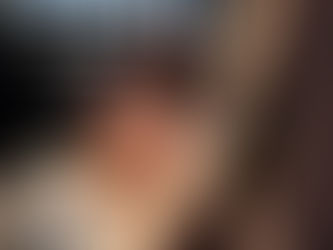KARIN ANN ON MUSIC, SELF-EXPRESSION, AND FINDING HER COMMUNITY
- Maisie Daniels
- Oct 15, 2025
- 4 min read

WORDS BETH CUTTING
Karin Ann isn’t your typical pop artist. At just 23, the Slovak singer-songwriter is already making waves far beyond her home country with her bold, genre-blending sound and unapologetic honesty.
Whether she’s tackling topics like mental health, identity, or the queer experience, Karin brings a refreshing sense of authenticity to everything she creates. Her music (whether it’s gothic alt-pop or brutalist folk) feels both deeply personal, yet relatable.
Her style, both musically and visually, is all about breaking the rules and staying true to herself, something her growing fanbase clearly connects with.
In this interview, Karin opens up about her creative journey, the importance of carving out space for mental health and life outside of music, and what it’s like navigating the industry while keeping her sense of self intact. She also talks about the power of collaboration including her unforgettable reimagining of Heroes alongside members of David Bowie’s band.
Betty Cutting: How are you feeling, Karin Ann?
Karin Ann: Not great, a bit sick right now. But, you know, it is what it is.
BC: I went camping at a farm over the weekend, and we all came back sick too. Are you in London at the moment?
KA: Yeah.
BC: I really love your vibe: timeless but original. I haven’t seen anything like it since Amy Winehouse.
KA: Thank you, I really appreciate that.
BC: Do you remember your earliest musical influences?
KA: I grew up doing figure skating and ballet, so I was surrounded by soundtracks and classical music. At home, my mom played Queen, The Beatles, The Kelly Family, and Czech musicals. All of that subconsciously shaped how I approach music today.
BC: Did figure skating affect the kind of music you listened to?
KA: Definitely. Back then, you could only skate to scores or instrumentals. Most kids wouldn’t have gravitated toward that, but I did, and it stuck. Even now, I love soundtracks and scores, and I even have a favourite composer.
BC: Do you think that helped you develop your approach to original covers?
KA: Probably. My whole upbringing involved storytelling through movement, singing, and acting. That mix reflects in my music and how I interpret songs.
BC: Your music spans so many genres. Is that because of your interest in instrumentals?
KA: Partly. I started young, exploring different styles as I found my identity. Every song or EP was me at that moment, but now I’m returning to what I’ve loved since childhood.
BC: And your earliest writing?
KA: I wrote poems around age nine. Later, self-expression came through drawing, dance, and personal style. Even though I’ve always been shy, I found ways to express myself creatively.
BC: How have your surroundings influenced your writing?
KA: Everything - the people, experiences, and media I consume - shapes my art. Inspiration comes from life, consciously or subconsciously.
BC: What was it like growing up queer in Slovakia?
KA: It was hard. Space to be yourself was limited, so self-expression through art, fashion, and music became essential. Most of my friends came from online communities or fandoms. That experience drives me to create art that shows people like me there’s a place for them.
BC: Do you prefer a big community or a small, close-knit group?
KA: A few close friends work best for me. I’ve always craved community, but social media and the pandemic have made it harder for people to connect in real life. Now, I want to focus more on building a real-life community in London.
BC: Were you writing music in lockdown?
KA: A bit. I released my first Slovak song a week before quarantine, and the pandemic impacted my tour and career trajectory. Transitioning from school to music professionally was a blur, and the pressure took a toll on my health. I couldn’t walk for three months.
BC: How did that affect your creativity?
KA: It was rough. I considered quitting, felt numb, and had zero inspiration. But it forced me to find a healthier approach. Working privately on my first album allowed me to create freely without external pressure. I prefer to develop music quietly and release it when it’s ready.
BC: So pressure can block creativity?
KA: Absolutely. I’m always working on something, but it’s better to take your time and create something I’m proud of than rush for expectations.
BC: How does collaboration affect your music?
KA: It depends on the fit. Some sessions never get released; others become amazing. I try not to overthink or set expectations. Admiring someone’s work can create imposter syndrome, but I focus on creating what feels right.
BC: What about your covers?
KA: It varies. Heroes was pre-planned and carefully produced with Mark Plati and members of Bowie’s band. Wicked Game was spontaneous; it was popular on tour, so we recorded it quickly. Both needed a balance: honoring the original while making it my own.
BC: Will music always be central to your self-expression?
KA: Definitely. Musical theatre has always been a dream, but original music will remain part of everything I do. Music feels essential to my life, like a limb I can’t live without.
BC: One final question - what’s your favourite F-word?
KA: Flowers.












